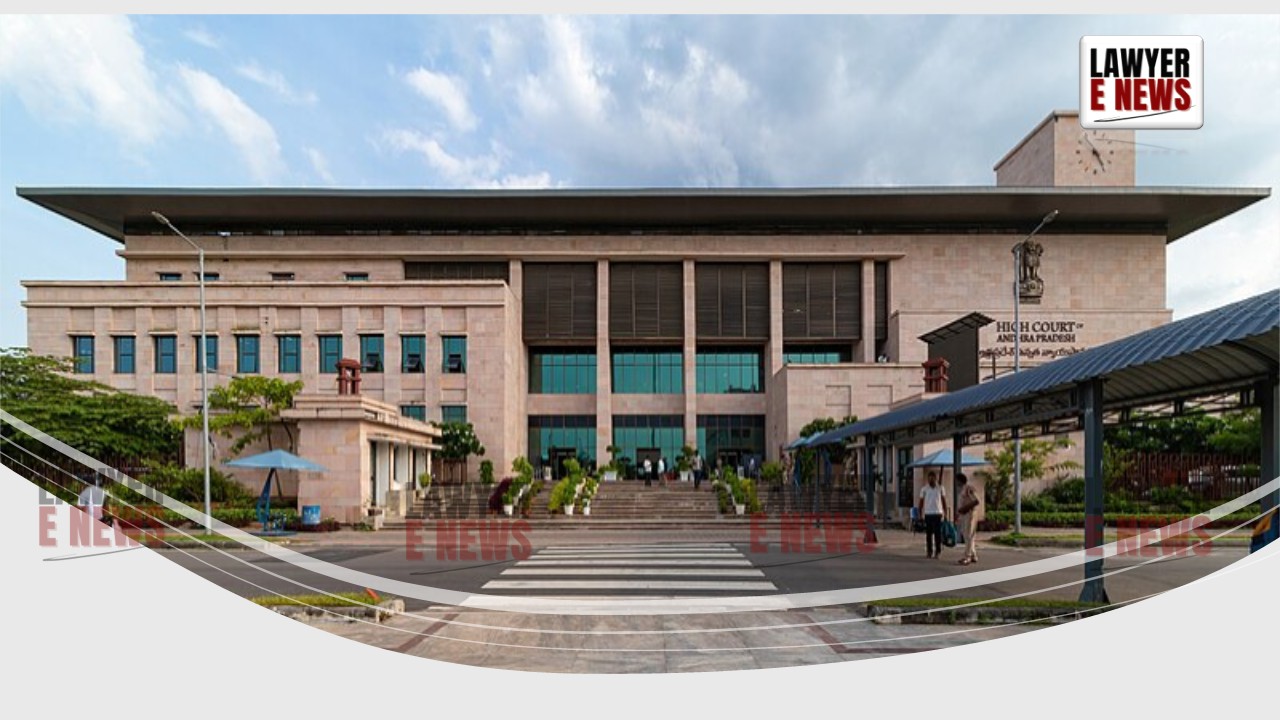-
by Admin
18 February 2026 2:25 PM



“Strangers to Wakf Need Not Challenge Notification Within One Year – Limitation Not Applicable When There Is No Notice”: - In a landmark judgment Andhra Pradesh High Court ruled that mere publication of land as Wakf property in a gazette under the Wakf Act, 1954, does not bind private individuals who were not given notice during the survey proceedings. The Court held that such parties cannot be barred by limitation from challenging the Wakf status, and left it open to the appellants to seek appropriate civil remedies for declaration of title.
The Division Bench of Justice R. Raghunandan Rao and Justice Maheswara Rao Kuncheam clarified: “A stranger to a Wakf is not required to file any suit for declaration of his title within a year from publication in the gazette. The limitation under Section 6 of the Wakf Act, 1954 does not apply to such persons.”
“Declaration of Wakf Status Without Notice Is Not Binding on Private Owners”
The case arose from land in Survey No. 327 of Palamaner Village, Chittoor District, claimed by the Wakf Board as Inam land granted under Title No. 1979 for maintaining a religious site. However, the appellants had been residing there for decades, having constructed houses based on registered sale deeds, including one dating back to 1946, prior to the enactment of the Wakf Act itself.
When the Sub-Registrar refused to register further sale transactions, citing a 2012 Wakf Board letter and a 1962 gazette notification, the appellants challenged the decision, asserting:n“The land is private patta land, and we have been in uninterrupted possession for more than 68 years. No notice was ever served to us in the Wakf survey.”
The Wakf Board, in contrast, claimed the land was granted for religious purposes and any sales by the family of the original Muthawali were illegal.
“Mere Notification Under Section 5 Cannot Extinguish Private Rights Without Due Process”
The Court referred to the Supreme Court’s seminal judgment in Board of Muslim Wakfs, Rajasthan v. Radha Krishna (AIR 1979 SC 289):“Where a stranger who is a non-Muslim and is in possession of a certain property, his right, title and interest cannot be put in jeopardy merely because the property is included in the list. He is not required to file a suit within a year.”
The Bench found that this principle remains applicable even though the 1954 Wakf Act has been replaced by the 1995 Act:
“The publication in the gazette was made under the Wakf Act, 1954. The decision of the Supreme Court under the 1954 Act holds that third-party rights are not automatically extinguished by such notification.”
“Writ Not Maintainable, But Civil Suit Remedy Available – Limitation Not a Bar”
While upholding the learned Single Judge’s dismissal of the writ petition, the High Court emphasized: “The appellants are free to file a suit for declaration of their title and challenge the notification treating the property as Wakf. Limitation will not apply as they’ve been contesting since knowledge of the notification.”
The Court granted three months to the appellants to file such a suit and directed that: “Status quo shall be maintained for three months, and if a suit is filed within that time, it will continue till disposal.”
“Registration Block Based on Wakf Claim Not Final – Buyers Can Seek Deletion from List”
The Bench also noted the Full Bench ruling in Vinjamuru Rajagopala Chary v. State of Andhra Pradesh (2016 (2) ALD 236 FB), which permitted affected landowners to apply for deletion of their land from the prohibited list under Section 22-A(c) of the Registration Act.
“It is open to the appellants to move the Wakf Board for deletion of their land from the list. The concerned authorities are bound to decide such applications within six weeks.”
In a measured and balanced ruling, the Andhra Pradesh High Court reaffirmed that rights of long-standing private occupants cannot be overridden by Wakf notifications issued without notice. Though the writ appeal was disposed of procedurally, the Court ensured substantial justice by allowing the appellants access to civil remedies without limitation barriers.
“Mere registration of a document does not confer title—but nor does a gazette entry under the Wakf Act extinguish it without adjudication.”
Date of Decision: May 5, 2025
